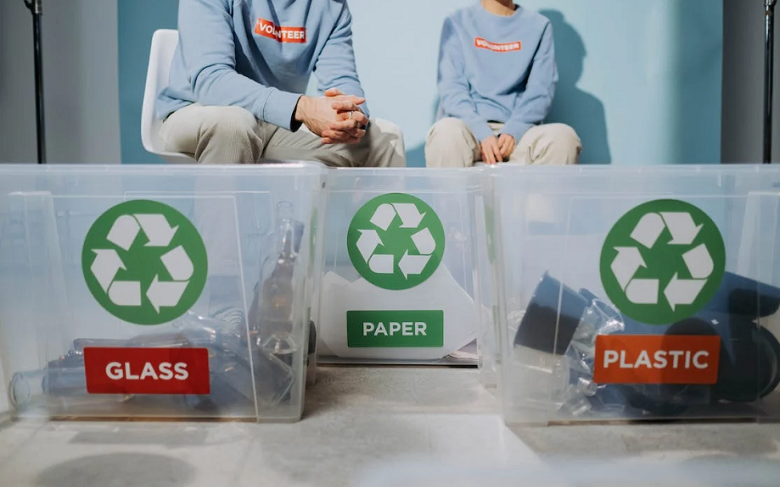Turning Trash into Treasure: Beneficial Reuse Services Explored

Over 2 billion tons of waste are produced annually, the vast majority of which ends up in landfills, the environmental and public health repercussions are staggering. This alarming statistic underscores an urgent need for change. Enter beneficial reuse services, a transformative approach that not only mitigates the environmental impact but also champions community welfare.
Recent studies have shown that the environmental and economic toll of traditional waste disposal methods is unsustainable.
Understanding Beneficial Reuse Services
Beneficial reuse services are more than just a waste management strategy; they’re a commitment to the environment and the community.
Unlike traditional recycling or liquidation, these services focus on donating surplus items to communities in need, ensuring that products find a second life and serve a greater purpose.
This approach not only reduces the strain on our already overflowing landfills but also fosters a sense of community and shared responsibility.
The Stark Reality of Waste in the Modern World
Recent studies have unveiled some alarming figures. The US alone spends around $200 billion annually on solid waste management. With the global solid waste management market size exceeding USD 1 Trillion in 2019, the urgency for sustainable solutions has never been more evident.
- The American Waste Footprint: The average American family generates a staggering 6,570 pounds of trash per year. This waste predominantly consists of organics like paper, making up 66% of the municipal solid waste stream.
- The Global Perspective: A mere 13% of the world’s municipal solid waste is recycled, leaving a vast majority to contribute to environmental degradation. Annually, 93.9 million tons of MSW are recycled or composted.
The Financial and Environmental Cost of Traditional Waste Management
Traditional waste disposal methods, while prevalent, come with a hefty price tag, both financially and environmentally. The US waste and recycling industry alone was worth an estimated $91 billion in revenue during 2022. But beyond the financial implications, the environmental cost is even more significant.
- Landfill Limitations: With landfills reaching their capacity, the need for alternative waste management solutions becomes paramount. The environmental repercussions of overflowing landfills include groundwater contamination, methane emissions, and loss of biodiversity.
- The Carbon Footprint: Waste disposal, especially in landfills, contributes significantly to greenhouse gas emissions. Methane, a potent greenhouse gas, is released during the decomposition of organic waste.
The Comparative Advantage of Beneficial Reuse Services
When we juxtapose traditional waste management methods with beneficial reuse services, the advantages of the latter become abundantly clear.
The Societal Impact of Beneficial Reuse
Beyond the tangible economic and environmental benefits, beneficial reuse services have a profound societal impact. By redirecting surplus items to communities in need, businesses not only reduce waste but also play a pivotal role in societal welfare.
- Community Empowerment: Donated items, whether they are food products or cosmetics, can make a world of difference to underserved communities. These donations empower individuals, providing them with resources that might have been inaccessible otherwise.
- Charitable Collaborations: Partnering with charitable organizations amplifies the impact of beneficial reuse services. These collaborations ensure that donated items reach the right hands, fostering community development and well-being.
The Economic and Environmental Impact
The economic implications of waste disposal are vast. Businesses often grapple with the costs associated with managing excess products. Beneficial reuse services offer a beacon of hope, with potential savings of up to 50%.
Moreover, by adopting this approach, companies can enhance their Environmental, Social, and Governance (ESG) scores, reflecting a genuine commitment to sustainable practices.
Transitioning from a linear to a circular economy means minimizing waste, optimizing resources, and reducing environmental impact. It’s about creating a system where products are reused, not discarded, promoting a sustainable future for all.
In 2023, the emphasis on sustainable practices has never been higher, with businesses and consumers alike seeking eco-friendly alternatives.
Industries Benefiting from Reuse Services
Every industry, from food and beverage to e-commerce, faces the challenge of surplus. Beneficial reuse services offer a tailored solution, ensuring that excess products, whether food items or cosmetics, find a new home rather than ending up in landfills.
As consumer awareness grows, industries are under increasing pressure to adopt sustainable practices. Beneficial reuse services provide a viable and socially responsible solution.
Addressing Specific Product Challenges
- Surplus Food Items: The global food wastage issue is monumental. By donating surplus food, businesses not only reduce waste but also support local communities, ensuring that no one goes hungry.
- Damaged Goods: Accidents happen. But what if damaged goods could be repurposed? Donating these items to charitable organizations minimizes waste and offers a silver lining to unforeseen mishaps.
- Expired Products: The shelf life might be over, but these products can still make a difference. Donating expired goods, especially from pharmacies and supermarkets, can support community welfare initiatives.
- Off-Spec and Overstocked Products: Every product deserves a chance. By donating off-spec or overstocked items, businesses can ensure that their products serve a purpose and support those in need.
- Returns: The e-commerce boom has led to an increase in returns. Instead of viewing this as a challenge, businesses can see it as an opportunity to donate and make a difference.
- Cosmetic Disposal: Beauty products, even if expired, can be a treasure for many. Donating these ensures that they find a new home, promoting sustainability and community support.
Happen Ventures: Leading the Beneficial Reuse Revolution
With over 50,000 truckloads diverted and $650M of goods reused, Happen Ventures stands at the forefront of the beneficial reuse movement. Their program transforms unwanted inventory into opportunities, offering businesses tax savings and a chance to boost their sustainability profile.
The Future of Beneficial Reuse Services
The year 2023 has seen a surge in the adoption of beneficial reuse services. With increasing awareness and the undeniable economic and environmental benefits, more businesses are recognizing the value of this approach. As we look to the future, it’s clear that beneficial reuse services will play a pivotal role in shaping sustainable business practices.
Conclusion
Beneficial reuse services are not just a trend; they’re the future. As businesses seek sustainable solutions, donating surplus items to communities in need emerges as the go-to approach. It’s time to embrace this revolution, turning trash into treasure and making a lasting impact.











